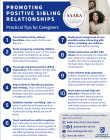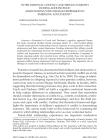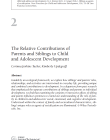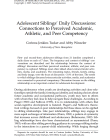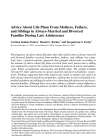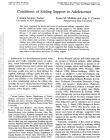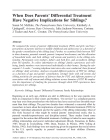Positive sibling relationships are associated with better mental, physical, and relationship health across the lifespan, including less depression and relationship violence. Warm and supportive sibling relationships in childhood often continue in adulthood and are linked to improved well-being, even in later life.
The importance of siblings is often overlooked, but this relationship has unique features that make it salient for child development and well-being.
- Everyday Contact: The extensive time siblings spend together creates a shared history and familiarity not often experienced in other relationships. Time together can create a strong bond.
- Emotional Intensity: Siblings know each other’s quirks, worries, and joys better than most other people. This creates the potential for significant highs and lows in the relationship.
- Involuntary Relationship: We don’t get to choose our siblings. This can create an enduring, lifelong bond, but also makes it harder to avoid a difficult or harmful sibling relationship.
Sibling relationships don’t have to include rivalry, aggression, or abuse. There are many things parents and families can do to encourage positive sibling bonds at any age, starting in early childhood.

The Science of Siblings
The enduring importance of siblings in our lives.
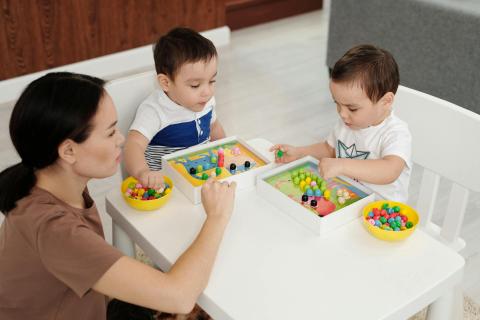
Yes, You Can Teach Siblings Empathy
September 2025

Help Children With Disabilities and Their Siblings Get Along
March 2025

The Lifelong Benefits of a Close Sibling Relationship
January 2025

3 Ways to Foster a Positive Sibling Relationship
December 2023


